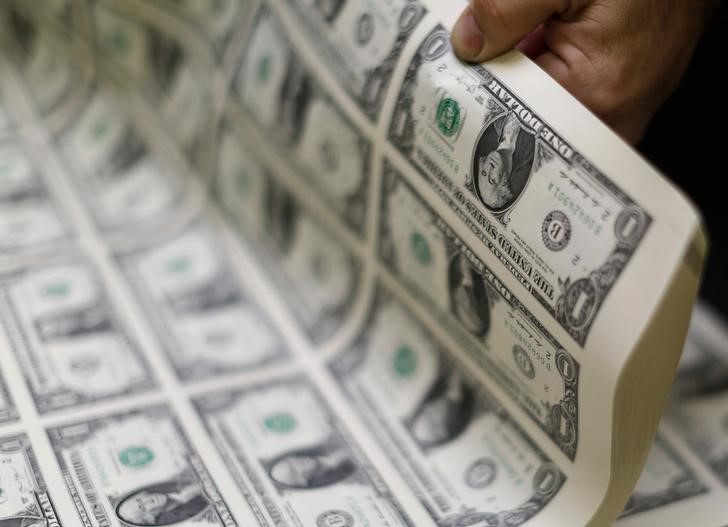
ExchangeRates.org.uk – An uncompromising stance on trade from the US Administration triggered panic equity-market selling on Monday.The US VIX index of volatility, the so-called fear index, hit the highest level since March 2020 and volatility will remain intense in the short term.
Demand for defensive assets dominated with the Pound to Euro (GBP/EUR) exchange rate sliding to 7-month lows at 1.1700.
The Pound to Dollar hit 1-month lows at 1.2820 before trading around 1.2875.
Sterling will need a rally in risk assets to secure a significant recovery.
US rhetoric and central bank comments will be watched very closely.
Asian equity markets declined sharply with the impact magnified by the fact that Chinese and Hong Kong markets were closed on Friday.
The Hong Kong HSI index slumped over 13% on the day while the Shanghai index posted a sharp 7% decline.
Japan’s Nikkei 225 index also slumped 7.8%.
Danske Bank (CSE:DANSKE) commented; “Risk-off taken to new extremes this morning with a circuit breaker briefly suspending Japanese trading this morning due to too large sell orders.”
Trade uncertainty remains extremely high and the US Administration has shown no sign of making concessions.
Danske Bank commented; “Investors find themselves in the hands of Trump and as no one knows how far he will go investors are running better safe than sorry and selling risk in general.
Hence, this is not a selective rotation story yet, but outright derisking.”
UBS chief economist Paul Donovan noted that confidence in Trump team is faltering; “Investors had assumed Trump’s trade taxes were a bargaining tool, as during the first term.
That depends on competent policymaking to balance the benefits of trade negotiations against the damage of tariffs.
If the competence of policymaking is questioned, markets will worry that economic damage will be lasting.”
According to XTB research director Kathleen Brooks; “This market is looking for concrete action, not talk of action.
The best panacea for financial markets right now would be a pause or reversal from the US on its tariff programme.”
The dollar posted net losses on fears over the economic outlook, but it recovered from lows amid fears over a deeper crisis.
There was inevitably strong demand for defensive assets.
ING commented; “With no sign yet of a U-turn from Trump on tariffs, equity markets remain under heavy pressure.
For FX, the flight to safety seeks those liquid currencies with large current account surpluses, notably the yen and the Swiss franc.
The US current account deficit of 4% of GDP leaves the dollar vulnerable – unless this turns into a financial crisis.”
It noted that evidence of very strong demand in swap markets would be potentially very important.
ING added; “this would be a sign of trouble and could briefly send the dollar higher before the Fed is forced to step in.”
Interest rate expectations will also be a key element.
There are strong expectations that the ECB will cut interest rates again this week.
On Friday, Fed Chair Powell stated that it was too early to make a judgement on the tariff impact and he considered that the central bank had plenty of time to assess developments.
Pressure on the Fed will intensify if conditions deteriorate.
ING commented; “While the market does hear his remarks that tariff-induced inflation risks becoming more persistent, it is instead focusing on the stock market and growth prospects and making the call that the Fed will be forced to cut.
Needless to say, US and global growth forecasts are being slashed across the board.”
Bank of England expectations have also shifted further with traders seeing close to a 90% chance of a May rate cut with at least two further moves later in the year.
This content was originally published on ExchangeRates.org.uk